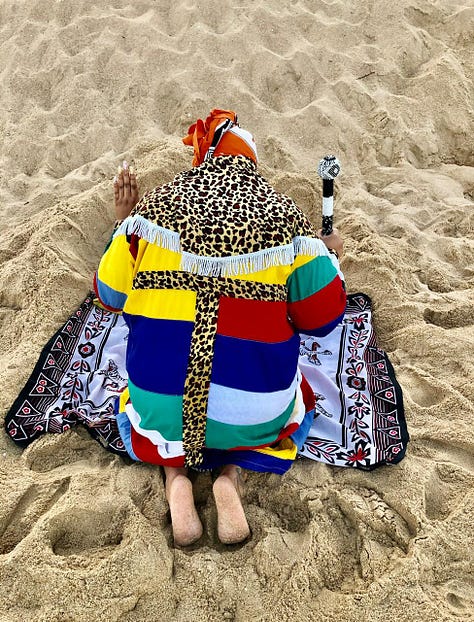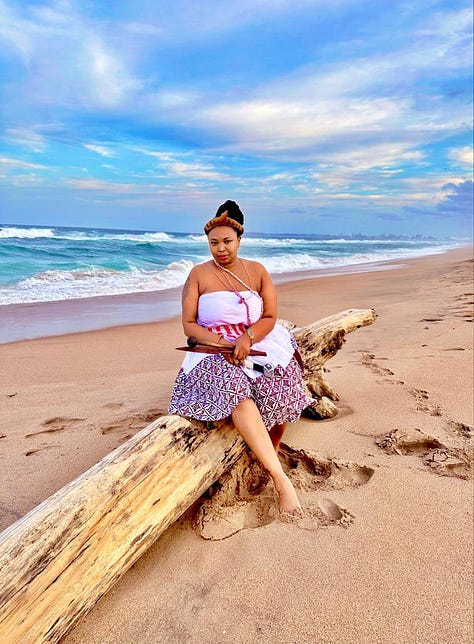Bridging two worlds: How South Africa Integrates traditional and modern Autism treatments to introduce it to global patients
In South Africa, families navigating autism often turn to both Western medicine and traditional healing. Dr Alum Orurach, a clinical associate with expertise in neurodivergence, explains how the two approaches can complement each other bringing holistic support to individuals on the spectrum.
Autism Spectrum Disorder (ASD) presents unique challenges for families worldwide, but in South Africa, the approach to managing the condition is as diverse as the culture itself. Many families combine Western medical therapies with the age-old wisdom of traditional healers, known as Sangoma, to support neurodivergent individuals.
Dr Alum Orurach, a clinical associate in South Africa with extensive experience in mental health, explains that while Western psychology offers behavioural and speech therapies, traditional healing introduces a spiritual and naturalistic dimension that resonates deeply with local communities.
"We do see a lot of patients on the spectrum, and we understand that many families also seek traditional healing alongside Western medicine," says Dr Orurach. "It's important to acknowledge cultural beliefs rather than dismiss them. Integrating both approaches allows for better understanding and management of autism."



A Dual Approach to Autism
Western treatments for autism typically include behavioural therapy, speech therapy, and occupational therapy. These methods focus on developing communication skills, improving social interactions, and helping individuals adapt to daily life.
In contrast, South African sangomas—traditional healers—use methods grounded in spirituality, herbal medicine, and ancestral guidance. Their approach may involve rituals, cleansing ceremonies, and natural remedies designed to create balance within the individual and their environment.
"Sangoma’s use natural ways of living to manage symptoms," Dr Orurach explains. "For example, they may recommend herbal teas like chamomile for relaxation or encourage playing soft drum rhythms in a child's room to create a calming effect. Interestingly, in Western medicine, we use white noise for the same purpose."
Both methods share a common goal: improving the quality of life for individuals with autism. While psychology focuses on structured therapies, traditional healing embraces community, nature, and spiritual well-being.
The Importance of Cultural Sensitivity
For many South African families, autism is not just a medical condition—it is deeply tied to cultural beliefs. Dismissing traditional healing can create barriers to treatment, making families hesitant to engage with Western medicine.
"As medical practitioners, we must respect families’ beliefs and find ways to work with them," says Dr Orurach. "If we acknowledge their cultural perspectives, they are more likely to trust and follow medical advice. Integration, rather than opposition, is key."
This cultural sensitivity is crucial in ensuring that children with autism receive comprehensive care. For instance, while psychologists might suggest structured routines, a sangoma might emphasize ancestral rituals that bring comfort to the family. Both approaches focus on creating stability and reassurance for the child.
Does Integration Work?
Many families find that combining traditional and Western treatments leads to better outcomes. Dr Orurach has observed improvements in children who engage with both psychological interventions and traditional practices.
"Families using both methods report that their children are calmer and more adaptable," she says. "They take part in speech therapy while also following traditional guidance on diet and spiritual well-being. It’s a holistic approach that works for them."
Bringing Traditional Healers and Psychologists Together
Despite the benefits, collaboration between psychologists and traditional healers remains limited. However, efforts are underway to bridge this gap.
"There has been some hesitation, but we are making progress," says Dr Orurach. "With social media and community initiatives, we are creating spaces where medical practitioners and sangomas can exchange knowledge and learn from each other."
Awareness campaigns, such as World Autism Awareness Day on April 2nd, provide an opportunity for collaboration. Dr Orurach’s clinic at Mediwell, for example, will be hosting free consultation sessions and fundraising events to support individuals with autism.
"We are hoping that traditional healers will join us," she says. "Their knowledge is valuable, and we want to create an open dialogue."
A Message to the Global Audience
For international audiences unfamiliar with South Africa’s traditional healing methods, Dr Orurach draws a comparison to homeopathy—a globally recognized approach that emphasizes natural remedies and holistic health.
"Many people are sceptical of traditional healing, but when you look at it closely, it aligns with practices like homeopathy," she says. "It’s about understanding autism through a natural and spiritual lens, rather than just a medical one."
As conversations around culturally inclusive healthcare continue to grow, South Africa’s dual approach to autismpresents an important case study. Families are not forced to choose between science and tradition—rather, they can integrate both for a more personalised and meaningful form of care.
"The ultimate goal is the well-being of the child," says Dr Orurach. "And if combining these approaches helps them thrive, then we should embrace that."
Traditional healing process for Autism by a Sangoma
Zola Dube, a traditional healer from South Africa, discussed her journey and practice. She was called to healing after her mother's passing and underwent initiation. Dube uses candles, water from natural sources, and herbs to treat conditions like autism, which she believes can be spiritually influenced. She emphasized the rarity of autism in African families and the importance of addressing it spiritually before medical intervention.
Dube also described her tools, including candles, traditional sticks, and herbs known as imphepho, and detailed her process of consulting and healing, often involving trips to the ocean. She encouraged international parents to consider traditional healing methods, noting the dual approach in South Africa.

Zola encourages the western world to try and practice the ways South African Sangoma’s heal and calm Autism even if the ways might differ, she highly invites them to add it to western medicine.




